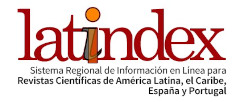Inter-municipal consortium as an instrument for municipal solid waste management in metropolitan regions: theoretical and conceptual discussion
Keywords:
municipal consortium, metropolitan regions, solid waste, associated management, collaborative arrangementAbstract
Municipal waste management landscape in Brazil is characterized by a weak performance and a series of contradictions on traditional models, imposing the need for improvement in current practice. In this context, the impacts of solid waste goes beyond the municipalities’ boundaries, demanding tools for joint action. Among thesis tools stands the Public Consortium, enabling the regional organization driven by local demands. This instrument acquires great expressiveness in metropolitan areas, responsible by 60% of solid waste generation. Despite the consortium emerges as an alternative for metropolitan management, its process of setting up and operation is charged of difficulties. Thus, this article discusses some of the factors that influence the functioning of municipal solid waste management consortium, adopting bibliographic and documental review as a scientific research method to contribute to theoretical studies about its applicability in metropolitan areas.Downloads
How to Cite
Nascimento Neto, P. N. N., & Moreira, T. A. (2012). Inter-municipal consortium as an instrument for municipal solid waste management in metropolitan regions: theoretical and conceptual discussion. Revista Brasileira De Gestão E Desenvolvimento Regional, 8(3). Retrieved from https://www.rbgdr.com.br/revista/index.php/rbgdr/article/view/790
Issue
Section
Artigos
License
Authors who have their papers accepted and published in the Brazilian Journal of Regional Management and Development must agree to the copyright policy CC BY https://creativecommons.org/licenses/by/4.0/.
If the article is accepted for publication, the copyright is automatically assigned to the Brazilian Journal of Regional Management and Development.
















